The Chicago Department of Transportation and Lyft have announced a major expansion for the city’s Divvy bike share system across multiple northwest and southwest neighborhoods. The expansion comes right after the system finished its latest round of work which included added stations, new e-bikes, and parking stations. However it comes at a time where bike-related deaths and accidents are on the rise with local advocates calling for improved infrastructure.
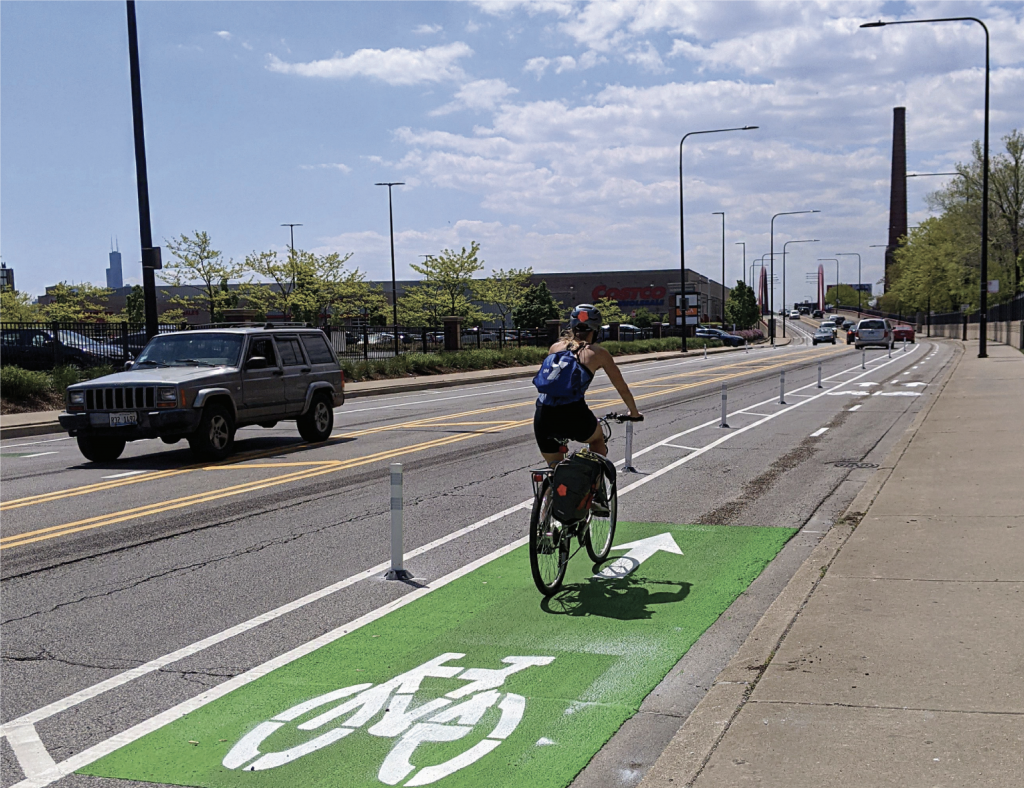
New protected bike lane on Damen by CDOT
The expansion would consist of 250 new stations and an additional 2,900 classic bikes, finally making the bike share system truly citywide across all 50 wards. This will give neighborhoods like Clearing and Ashburn on the southwest side, as well as Norwood Park and Union Ridge in the northwest side access to Divvy for the first time since its introduction over 10 years ago. Once the work is complete the system will boast more than 1,000 stations and 18,000 bikes and scooters, making it the largest in the nation.
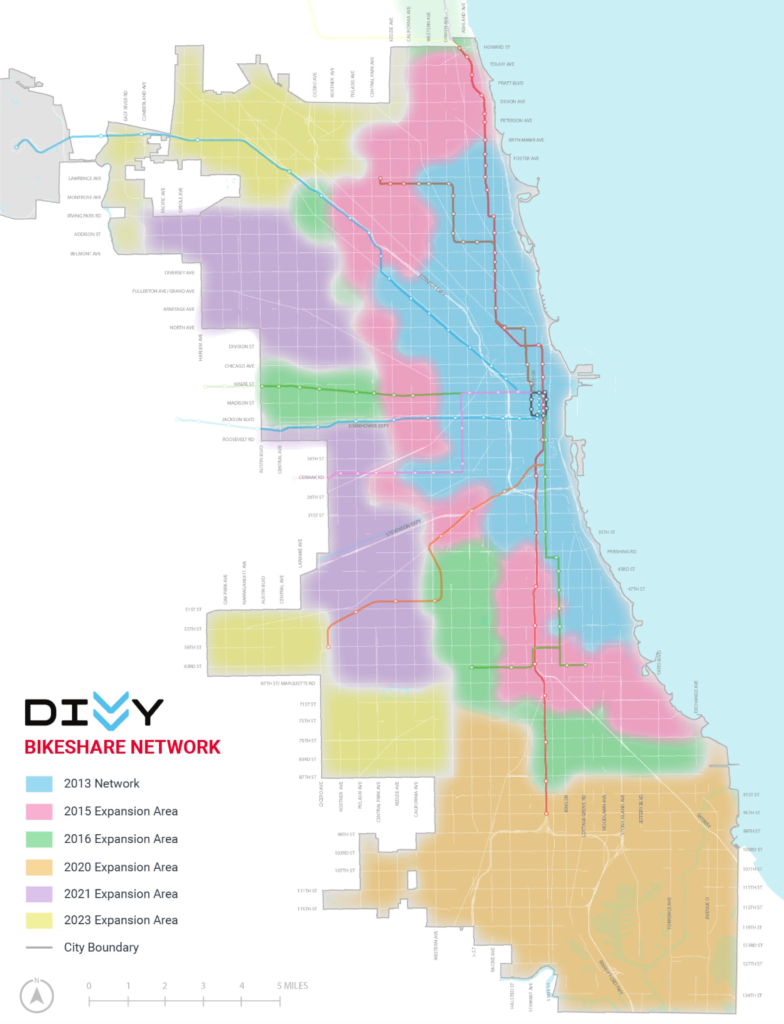
Divvy system expansion map via CDOT
Covering over 234 square miles, Divvy saw nearly 550,000 riders last year with an 60 percent increase in usage from 2019, with 2023 already beating last year’s numbers at the same time by 40 percent according to Lyft Transit. The expansion comes as cyclists are increasing pressure on the city to add more protected bike lanes as drivers frequently block those that are existing, with an overall increase in bicycle-related accidents and deaths in recent years.
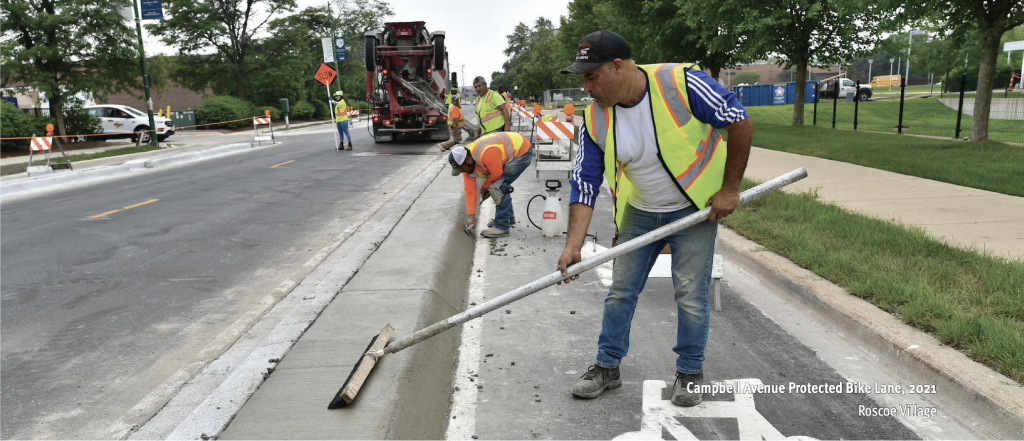
Protected bike lane installation by CDOT
According to the National Highway Traffic Safety Administration in Chicago there were more cyclist deaths in 2020 than 2016 to 2019 combined, with 2021 beating that number as well for an overall increase of 44 percent in preventable bicycle deaths over the last decade. The increase in bike traffic will also require the adequate infrastructure to keep all parties safe, which many times is controlled by individual wards as seen by non-continuous patches of bike lanes on main roads and more.
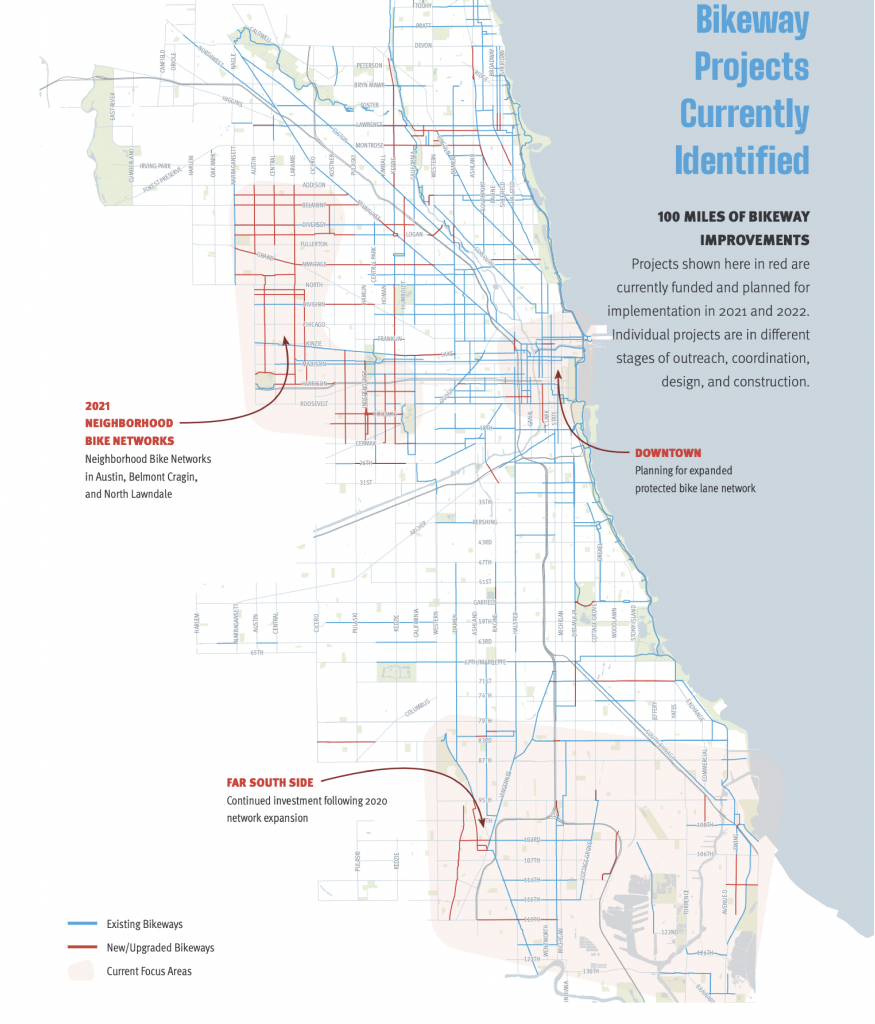
Map of 2022’s new bike lanes and areas of focus by CDOT
In 2022 the city embarked on an effort to expand and separate 45 miles of lanes, with the goal of creating more low-stress passages for riders. CDOT currently operates a roughly 420-mile network which consists mostly of shared roadways where most accidents happen, implementing a new equitable plan 2023. Similar to Divvy’s most recent expansions, CDOT has focused its network growth on the south and west sides which saw roughly 75 percent of all network growth in the last few years.
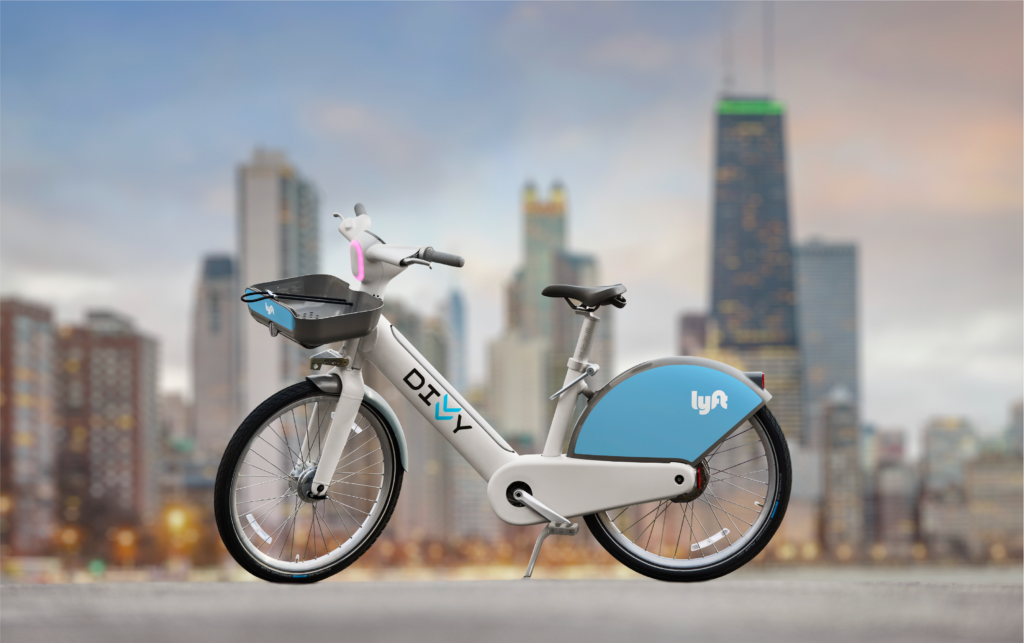
Current iteration of Divvy e-bike via Divvy
Divvy will now begin hosting various community meetings to determine where the new stations are to be placed, with the 250 stations set to be installed between the 2023 and 2024 riding seasons. While e-bike will now also be able to start and end rides anywhere in the city unlike before, recent price increases especially for said e-bikes have also been a point of contention for Divvy riders and its 43,000 members.
CDOT’s 2023 plan and information can be found here.
The city’s press release can be found here.
Subscribe to YIMBY’s daily e-mail
Follow YIMBYgram for real-time photo updates
Like YIMBY on Facebook
Follow YIMBY’s Twitter for the latest in YIMBYnews

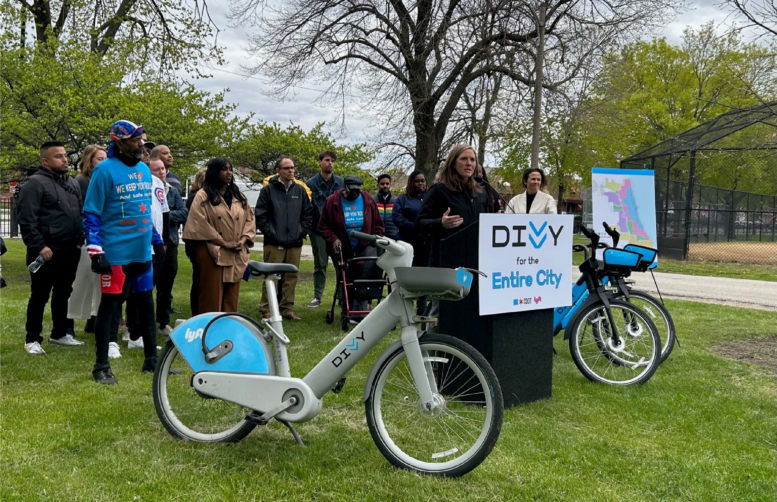
How accurate is that bubble map? Scrolling through many chunks of the Southwest Side, I can’t recall many DIVY stations, let alone see any bikes in the area. Pilsen becomes a big void of lack-of bike infrastructure. Carry that down through Armour Square, approaching Sox Park.